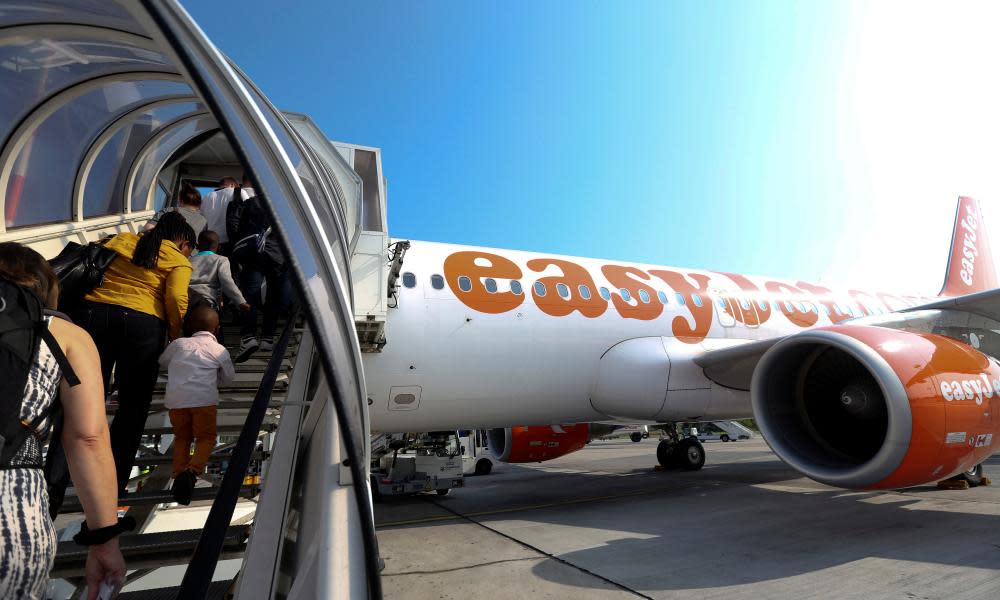EasyJet's grab of Thomas Cook spoils won't be flying too high

You had to travel a long way down easyJet’s bullish trading update to find the main reason for the “positive momentum” in the business, but eventually it appeared. Thomas Cook went bust, which is very helpful if you’re a competitor.
Naturally, management preferred to sing about factors under its control, such as artful teasing of “ancillary revenues”, meaning add-ons such as allocated seating. But the benefit from Thomas Cook’s demise last September probably had the greatest impact on the 9% boost in average revenue per seat in last three months of 2019; ticket prices could be nudged up.
One can’t exactly call the event a piece of good fortune since rivals go out of business all the time in the short-haul European market, but Thomas Cook was a biggie. The stock market caught the message early, of course: easyJet’s share price has improved by two-thirds since last autumn. Meanwhile, Brexit suddenly feels less terrifying, at least for this summer, and easyJet now has a carbon-offset policy to wave at its critics.
It is why Stelios Haji-Ioannou’s annual exercise of his speedy grumbling rights looks pointless this time. Even he sounded slightly apologetic. The founder and 34% shareholder (with his family) would like earnings to be higher because easyJet’s fleet has increased by 46% since 2015, but he’ll vote only a “token” few shares against the re-election of the chairman, John Barton, because he thinks he’s doing a good job.
The gesture is intended, one assumes, as the usual warning against ego-fuelled expansion. But, since easyJet is only adding 3% capacity this year, the airline is hardly engaged in a post-Thomas Cook grab for market share. Count your blessings, Stelios: this is about as good as it gets.
TalkTalk abandons broadband as business requires deep pockets
TalkTalk’s sale of its fibre broadband business, FibreNation, was delayed by Labour’s “free broadband” idea during the election campaign, but the interruption was brief. The business is now being bought by CityFibre, the Goldman Sachs-backed outfit, for £200m.
Fine, but the pause obscured the real question: why is TalkTalk selling so soon? It is only two years since the chairman, Sir Charles Dunstone, announced a great opportunity for TalkTalk in rolling out full fibre. A £200m fund-raising in 2018 was pitched, in part, as a way to fund the ambition. There was brave talk about finding a financial partner and passing 3m homes by the mid-2020s. As it is, the sale of the FibreNation division is happening when only 49,000 homes have been covered, mostly in York.
TalkTalk can boast a handsome return from the disposal – more than three times the £60m of capital invested – so the adventure has been worthwhile. The company also gets a long-term supply deal with CityFibre. But one can look at things the other way around. If the returns are so good at the start of fibre roll-out, why not stay for a few more laps?
The answer, it seems, is that TalkTalk can’t afford it. It could only compete if it found a partner, but a joint venture deal with M&G Prudential fell apart.
A return to life as a wholesaler and retailer of broadband is probably just a sensible recognition that taking on the likes of BT Openreach and Virgin in new fibre infrastructure requires deep pockets. All the same, the shares have gone roughly nowhere since Dunstone returned as executive chairman in 2017.
The profit on disposal is nice to have, but FibreNation was supposed to be a business for the long-term.
Lloyds’ green plan is fierce but fuzzy
A plea to companies planning to parade their carbon-reduction credentials: don’t be vague. It is clearly good news that Lloyds Banking Group wants to “help finance a green future” since it is the UK’s biggest lender. But even a cursory prod reveals a few problems with Lloyds’ pledge to “reduce the carbon emissions we finance by more than 50% by 2030”.
What quantities do you currently finance? Surely that’s essential to know. Details will be revealed only later this year, though. How will emissions through the supply chain be measured? The bank is still working on methodology.
Lloyds is sure, though, that it can’t make improvements alone since significantly reducing carbon emissions “will require entirely new ways of living and working for our customers and clients”. Fair enough, but are you also saying the 50%-plus “pledge” would not be binding on Lloyds if borrowers don’t play ball? That seems to be the gist.
One shouldn’t be too sniffy: Lloyds’ approach is bolder than most of its rivals’. But precision, as applies with financial promises, would help here.

 Yahoo News
Yahoo News 
